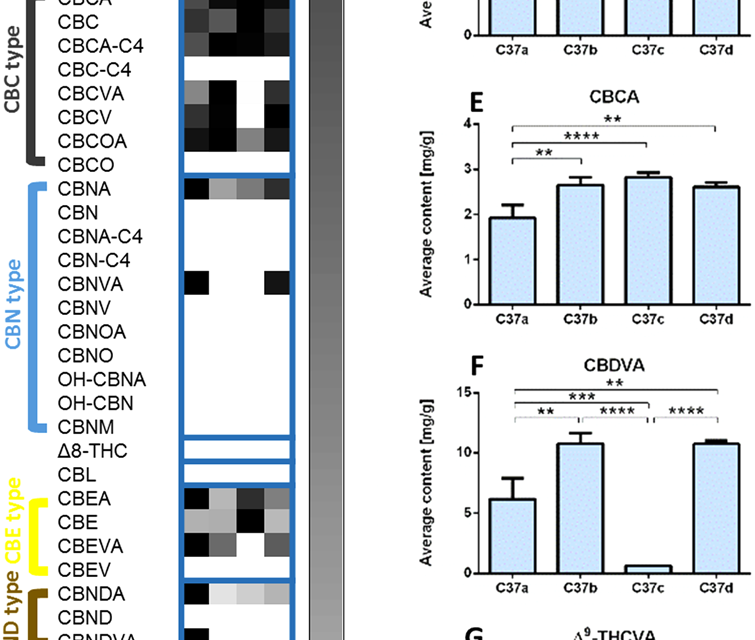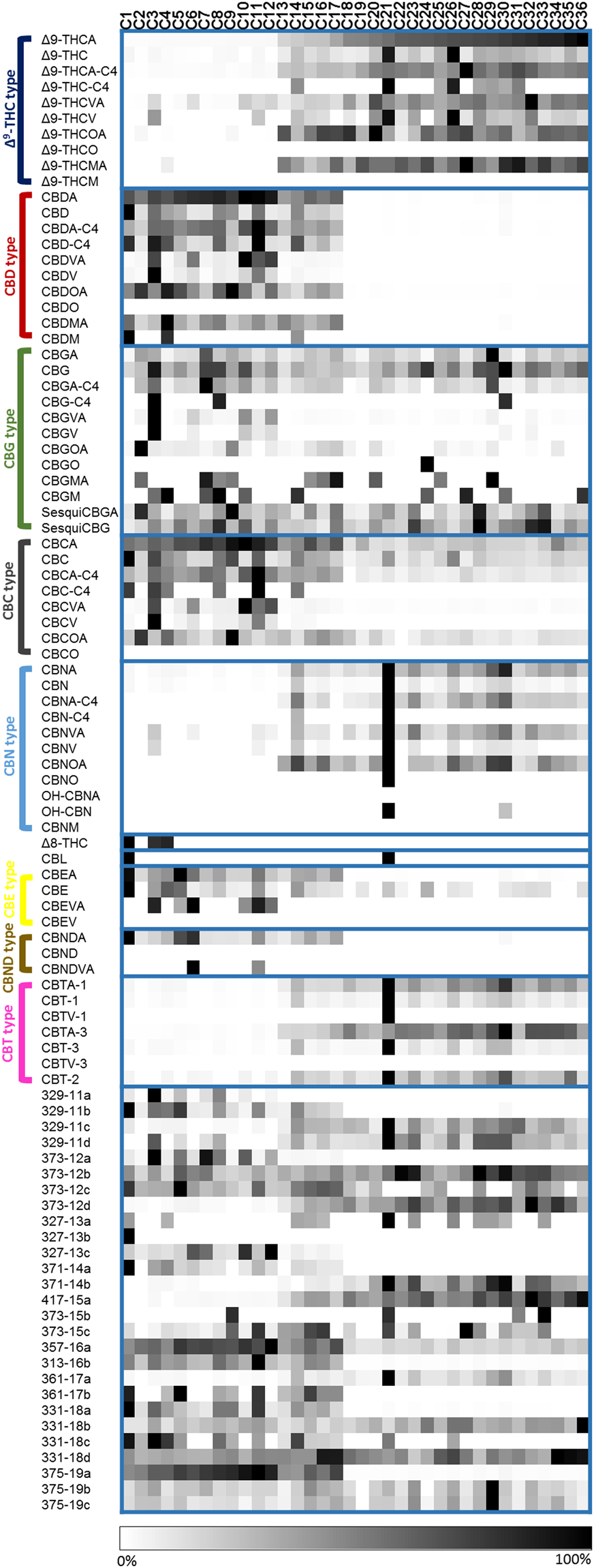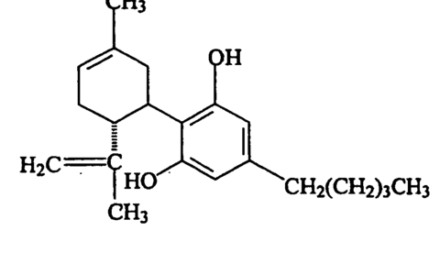Joe D. Goldstrich, MD, forwards a groundbreaking paper by Dr. David Meiri and colleagues at the Technion in Haifa, just published by Nature. Goldstrich comments:
“In this seminal study, Dr. Dedi Meiri and his team at the Department of Biology, Technion-Israel Institute of Technology enhance our knowledge of the content, effect, and variability of cannabinoids across 36 individual cannabis cultivars. After developing the ability to test for 94 unique cannabinoids, they demonstrate medicinal differences based on specific cannabinoid content. These technologies will enable researchers to uncover the specific cannabinoids and combination of cannabinoids that deliver the targeted medical benefits that cannabis has to offer.”
The Technion is known as “Israel’s MIT.” Meiri’s lab employs the most sophisticated (and expensive) analytical tools in its (simple, logical, longterm) effort to inventory the components of cannabis and identify their effects.
In the graphic below, the cannabinoid content of 36 chemovars are arranged according to increasing Δ9THCA content (top line). Goldstrich notes that even among those most similar to one another (C23 and C28), 30.6% of the cannabinoid components differed by more than 20%.
Phytocannabinoid profiling of 36 different medical Cannabis strains. The LC/MS concentrations of each phytocannabinoid were normalized to the highest value and compared per phytocannabinoid in a heat map. Strains were arranged according to increasing Δ9-THCA content (first line) and phytocannabinoids by subclasses.






